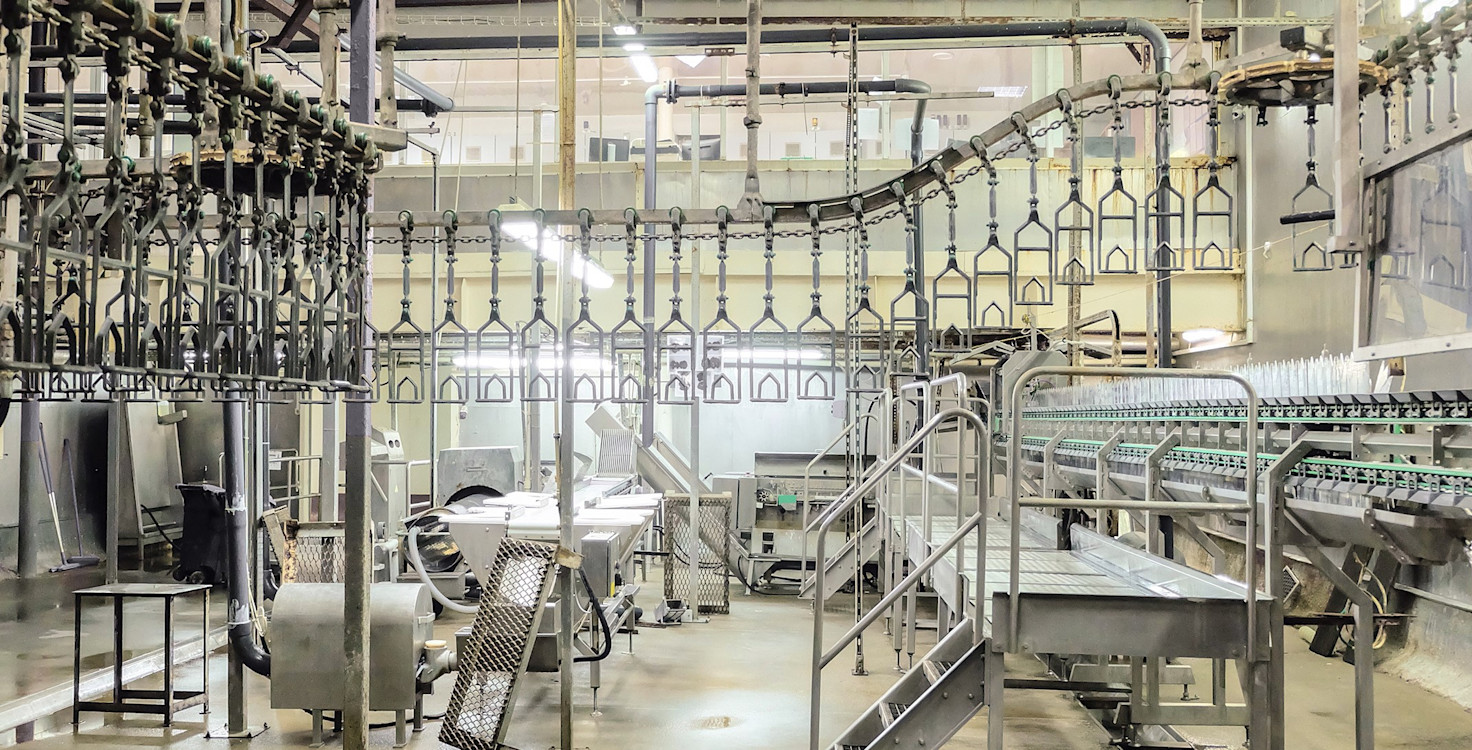This month marks one year since the WHO officially declared COVID-19 a global pandemic – a grim milestone for individuals, companies, investors and governments around the world. Multiple national lockdowns and a global recession later, things are beginning to look more optimistic as we start to work towards establishing a new ‘normality’.
But as the WHO has made clear, COVID-19 wasn’t the first zoonotic disease, nor will it be our last. In order to prevent another zoonotic disease from spreading, we need to take a good look at how our industries and lifestyles contribute to the spread of zoonotic disease, and implement robust infrastructure to manage, and prevent future outbreaks – so we can build back better.
Animal agriculture must be at the heart of these efforts. As the link between intensive animal agriculture and the spread of zoonotic diseases becomes clearer, what do we need to see from food companies to protect against future outbreaks?
Factory farms: A production line for zoonotic disease
For the last 70 years, the meteoric spread of factory farms has brought with it an increased frequency of zoonotic outbreaks. Pre-Covid we’d already seen a string of zoonotic disease outbreaks: (BSE (1989), SARS (2002), H1N1 Swine Flu (2009), MERS (2012), Ebola (2014), Zika (2015), Dengue Fever (2016)) and virologists argue that the emergence of COVID-19 was an inevitability.
Confined spaces for livestock, unsanitary working conditions and antibiotic misuse have culminated in an industry that is not only exposed to disease risk, it actively facilitates the spread of them. Three in four emerging infectious diseases in humans are zoonotic. In fact, new evidence from the WHO recently indicated that the wildlife farms supplying Wuhan’s seafood market are likely to be the culprit source of the pandemic.
Despite being up against weighted evidence, the majority of food companies are still not taking effective measures to manage the risks rooted in their supply chains.
Complacency from food companies hinders progress on pandemic resilience
FAIRR research has shown that the majority of the world’s largest meat, fish and dairy producers (over 70%), have undermined global efforts to control the spread of zoonotic diseases such as COVID-19.
FAIRR’s Pandemic Ranking, which assesses companies’ preparedness for pandemic risk, scores companies on critical risk factors such as worker safety, food safety, animal welfare and antibiotic stewardship. Of the companies assessed, 73% were graded as ‘High Risk’ across these factors. It’s clear that companies are largely failing to address systemic supply chain issues that cause pandemics to spread.
Safeguarding workers is also critical for helping curb the spread of future pandemics. Numerous meatpacking plant scandals last year were widely picked up by the global media, as COVID outbreaks erupted across the US and Europe. Tyson Foods, for instance, saw more than 8% of its US workforce infected with COVID-19 last year, along with thirteen different COVID-related controversies.
FAIRR has recently launched a collaborative investor engagement with seven of the largest global meat producers to address fundamental human capital risks in the animal farming industry. Slow responses from the industry have led to some of the most disastrous responses to the pandemic. So, investors with over $11 trillion of combined AUM want to make sure that these companies have the infrastructure to support this notably hazardous industry.
In addition, companies are also failing to effectively manage their antibiotic stewardship risk, which is seen by investors as a key indicator of a companies’ ability to manage future pandemics. Antimicrobial resistance (AMR) has been cited by the WHO as one of the biggest threats to human health, yet alarmingly 70% of companies assessed by FAIRR rank as ‘High Risk’ for antibiotic stewardship. To protect against future pandemics we need to see more robust antibiotic stewardship from companies in the meat value chain: from disclosing their usage to implementing policies to reduce it in line with the EU’s ban on prophylactic antibiotics next year.
Breaking the cycle: action on animal agriculture
Food companies have become trapped in a self-sabotaging cycle; one that not only puts public health at risk but destroys value too.
To break this cycle, we need to see bolder, more decisive steps taken by food companies to reform the outdated systems that have pandemic risks built into their core operating models: intensive farming is reliant on fast line speeds, close working conditions and a high volume of antibiotic use. All this will have to change to avoid putting both lives and profits at risk for the sake of the meat products on our shelves.
The world must do all it can to prevent the next novel zoonotic disease from emerging. Unfortunately, FAIRR’s research resoundingly shows that right now, we aren’t doing anywhere near enough. Animal agriculture companies are walking when they need to be sprinting to act on pandemic risks in their supply chains.
We need urgent collaborative action: governments must ensure that the industry is supported in its transformation, investors need to direct attention to issues that endanger the long-term health of markets, companies need to lead on these issues by example.
The race to build back better is on. The outcome depends on everyone taking responsibility for their part in this competitive relay race to build resilience against the next, inevitable, epidemic.
FAIRR’s engagements help companies to address the ESG risks in their supply chain and create safer, more sustainable food systems.
FAIRR insights are written by FAIRR team members and occasionally co-authored with guest contributors. The authors write in their individual capacity and do not necessarily represent the FAIRR view.
